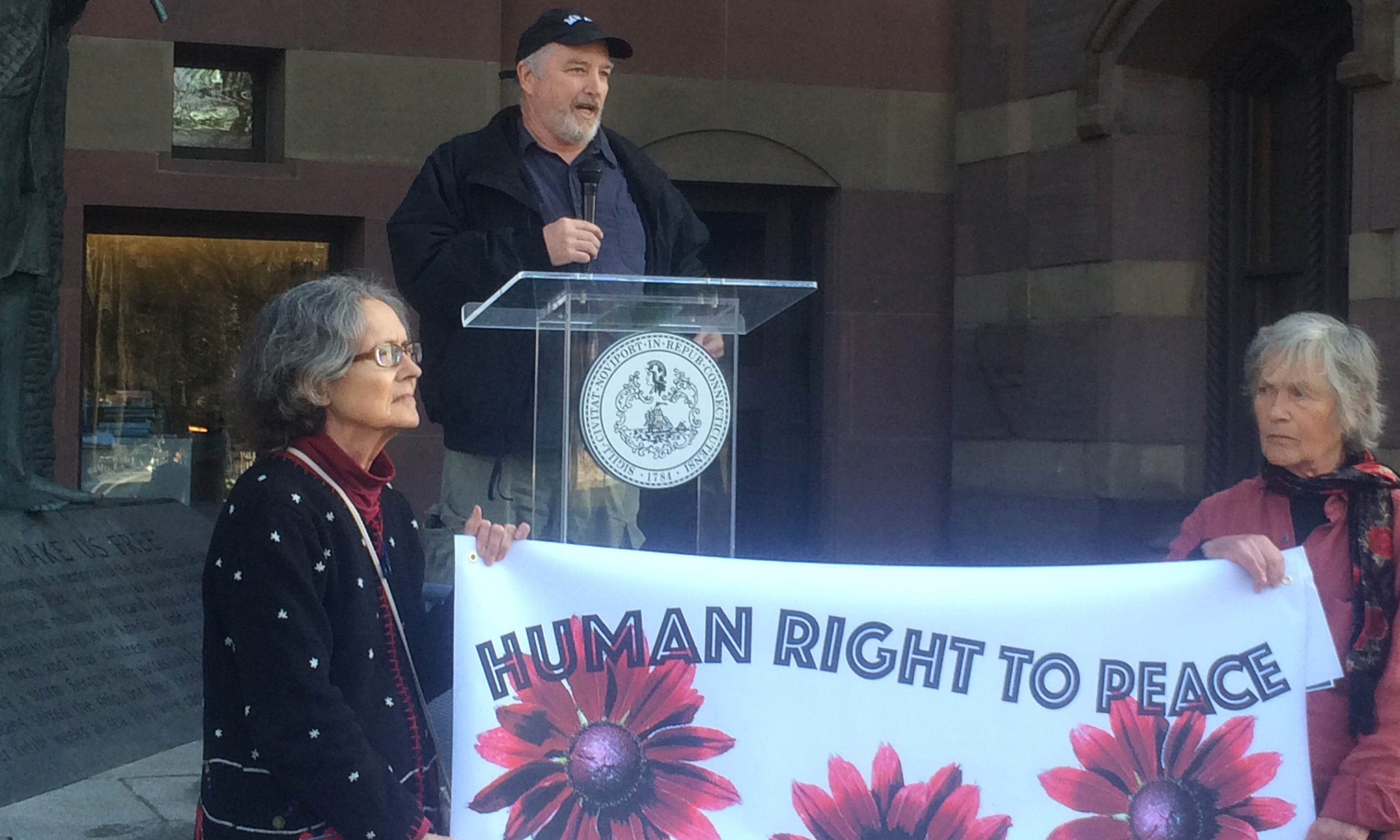
Standing before a memorial to the United States’ tortured past of slavery and oppression Thursday, Mayor Toni Harp recounted moments from American history to make the case against using war as a means of conflict resolution.
“Here in New Haven, we stand with those around the world who seek to limit the use of weapons and of violence to resolve disputes,” she said. “American history has all too many examples of the failed logic of war.”
Harp’s remarks were the opening to the Greater New Haven Peace Council’s celebration of the United Nations Human Rights Day, a commemoration of the United Nations Charter and its Universal Declaration of Human Rights. The event, held in front of the Amistad Memorial next to City Hall, featured speakers from across New Haven’s activist community, ranging from environmental advocates to political activists opposed to Israel’s role in the Middle East.
Seth Godfrey, a member of the Greater New Haven Peace Council, said he is pleased that the city’s administration stands behind the cause of peace, calling Harp a “key supporter.” Godfrey said the quest for peace on a global scale can have local impacts; money that normally goes to the military can also go to cities, he said.
Upper Westville Alder Richard Furlow echoed Godfrey. He said the billions of dollars spent on machines of war should be spent on helping American cities instead.
“War has wages, and the wages of war are something we’re seeing in our city right now — bridges that can’t get replaced, crumbling sidewalks that take 10 or 15 years to be fixed,” Furlow said. “[Peace] is something that has to be enshrined in our culture and sown for generations to come.”
Speakers invoked a wide variety of causes in their pleas for peace. Mark Coville of the Amistad Catholic Worker house, a homeless shelter in the Hill, remarked on his recent trip to Guantánamo, Cuba with the advocacy group Witness Against Torture, where he overlooked the American prison complex at Guantánamo Bay. Despite a campaign promise, President Barack Obama has yet to close the offshore prison that houses terror suspects, which Coville said should “shame” Americans.
Chris Schweitzer, the program director of the New Haven/León Sister City Project, said the legacy of injustice in American foreign policy is especially apparent in Nicaragua and other parts of Central America, where the Sister City Project works.
“Throughout Latin America, you can see the scars of past wars,” he said. “In El Salvador and Guatemala, the rate of youth violence is very high, left behind by very violent wars that lasted for decades.”
Though issues of racial injustice took a backseat to the focus on human rights, speakers also emphasized the destructive role of American foreign policy on racial equality in the United States. Rev. David Good of the Tree of Life Foundation linked injustice in American foreign policy to “the targeting of young African-American men on our streets.”
Jess Corbett, an organizer with the UNITE HERE coalition of unions, said that, as a veteran who served in the U.S. Army in peacetime after the Persian Gulf War, he is personally opposed to the “military-industrial complex” that characterizes current American foreign policy. He said bringing the values of peace and justice to New Haven requires ensuring that residents can access good jobs.
Corbett reiterated the call that UNITE HERE and New Haven Rising have repeated since the summer: Yale University and Yale-New Haven Hospital should each hire 500 residents from New Haven’s “neighborhoods of need.”
“One thing I think about when I think about peace is what that means in New Haven,” he said. “And the thing that I think could really affect that is good jobs for people in New Haven, especially people of color.”
Despite the event’s location next to City Hall, city spokesman Laurence Grotheer said its organization was independent of the city administration.







